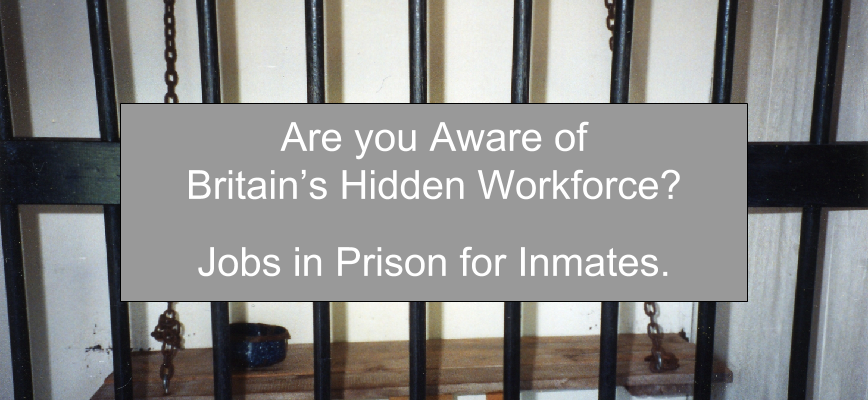In our UK prisons many inmates get the opportunity to work in workshops, or around the prison campus whilst serving their sentence.
This has been part of a major initiative in the rehabilitation of prisoners and to make use of a wasted workforce, a hidden workforce. The work that is taking place behind the thick, barbed walls of our prisons has evolved into a thriving commercialised industry with the capability of offering services such as laundry, printing, CNC machining and metal spinning, MIG welding, and the manufacturing of items such as insoles, furniture and clothing. In fact in the USA there are high trend fashion brands that have evolved from prison confinement.
What Companies have Items Made in Prison?
The growth of these internal industries has led to the winning and fulfillment of commercial contracts in the private sector, for example:
Travelodge – It is Prison Industries that provides the laundry service for Travelodge.
Morrisions – The workwear and aprons worn by staff at Morrisons are manufactured in our prisons.
Willisons Lea – Has their printing contract with Prison Industries.
Timpson – Provides shoe repair apprenticeships to inmates from their prison based academies.
The Future of Prison Industries
An inmate working in prison is six times more likely to go into further education or secure a job on their release, and not just for the minimum wage either. As a result of these promising statistics it is aimed to double the amount of jobs in prison for inmates, in workshops with a view to instilling a good work ethic into offenders.
Many offenders have never had a job before and the skills that they gain working in prison are key to them finding employment when released rather than them returning to a life of crime.
On the Flip Side
The use of our hidden workforce has major benefits for both our penal system, our communities and our industry, but can every inmate be trusted, is there room for error?
It appears so, after this recent newspaper article, that talks of messages being scrawled onto insoles that had been manufactured in a Leicestershire prison. The messages were found by a shoe shop worker who noticed the obscene message when she was cutting the children’s insoles to size.
The inmate cook was foolish enough to mention where he was, so the problem was easily traced back to the cause. Thankfully it wasn’t a customer or child that was subject to the messages.
So our hidden workforce is all well and good, but what if you get a person that is imprisoned for life and doesn’t feel they have anything to gain from the new skills that the training/working will give them. Could their behaviour become detrimental to the quality of the services or products produced?
What do you think? Have your say in the comments.

Be the first to comment on "Are you Aware of Britain’s Hidden Workforce? Jobs in Prison for Inmates."